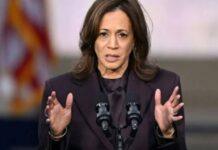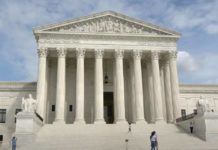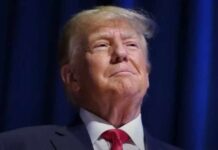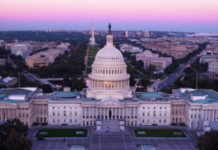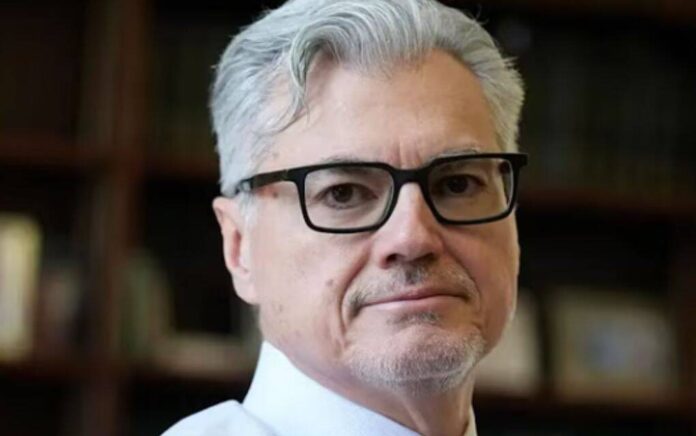
Donald Trump has been on the edge of seat over this controversial legal case. Now he’s finally learning what his sentence will be.
And a Supreme Court Justice blindsided Trump with a sentencing announcement that shook him to his core.
Donald Trump’s attempt to have his “hush money” case thrown out was rejected Friday by a Manhattan judge, who set the president-elect’s sentencing for January 10—just ten days before his inauguration. However, the judge indicated Trump likely wouldn’t face jail time.
In the much-anticipated decision, Manhattan Supreme Court Justice Juan Merchan wrote that he was leaning toward sentencing Trump to an “unconditional discharge.” This means the 78-year-old president-elect would avoid imprisonment, fines, or probation.
If upheld, Trump would enter office on January 20 as the first U.S. president convicted of felony crimes.
The ruling upheld the jury’s conviction of Trump on 34 felony counts for falsifying business records to conceal a $130,000 payoff to silence a scandal involving adult film actress Stormy Daniels before the 2016 election.
Trump’s legal team had argued the conviction should be overturned, citing a Supreme Court ruling from July that shields presidents from prosecution for “official acts” performed while in office. However, Merchan found that presidential immunity does not extend to actions taken before assuming office or to a president-elect. Overturning the jury’s verdict, he stated, would be “drastic” and “rare.”
Merchan emphasized the importance of resolving the matter before Trump’s inauguration, writing, “Finding no legal impediment to sentencing and recognizing that Presidential immunity will likely attach once Defendant takes his Oath of Office, it is incumbent upon this Court to set this matter down for the imposition of sentence prior to January 20, 2025.”
The judge also noted that while Trump could have faced up to four years in prison for each felony count, the “most viable solution” was an unconditional discharge. This approach ensures the case reaches closure while allowing Trump to pursue his appeals.
Legal Challenges and Political Implications
The ruling came after months of legal wrangling, with Merchan postponing Trump’s sentencing following the November 5 election to consider arguments from both sides. Trump’s attorneys contended that upholding the jury’s decision would interfere with his ability to prepare for his second term. They also claimed the trial was unfairly influenced by evidence related to his first term, which they argued should fall under presidential immunity.
Prosecutors countered that the Supreme Court’s decision didn’t apply in this case, asserting that covering up a p*rn star payoff wasn’t an “official act.” Manhattan District Attorney Alvin Bragg’s office proposed alternatives, including delaying the case until after Trump’s second presidential term or guaranteeing no jail time.
Neither Bragg’s office nor Trump’s attorney, Todd Blanche, commented on the ruling. However, Trump reiterated his longstanding grievances in a Fox News Digital interview, calling the case a “political witch hunt” orchestrated by President Biden and the Department of Justice. “I did absolutely nothing wrong,” he said. “This is a political witch hunt by [President] Biden and the DOJ.”
The Trial and Its Fallout
The case centered on allegations that Trump orchestrated a scheme to hide damaging stories during the 2016 election. Evidence presented at trial included invoices, digital ledger entries, and checks showing the Trump Organization disguised reimbursements to Michael Cohen, Trump’s former fixer, as legal expenses. Jurors heard testimony from Daniels and Cohen, who described how the hush money payment was arranged to suppress Daniels’ account of a 2006 affair with Trump.
Prosecutors argued that falsifying business records became a felony because it was done to conceal violations of election laws, including a payoff exceeding federal campaign contribution limits. Critics of the case questioned the prosecution’s reliance on a novel legal theory, claiming it amounted to selective enforcement against a leading GOP contender.
Despite the legal drama, Trump’s political fortunes surged. His campaign reported raising $34.8 million in small-dollar donations within hours of the guilty verdict. Almost half a year later, Trump defeated Vice President Kamala Harris in an Electoral College landslide to win a second term.
Trump’s Defiance and the Judge’s Challenges
Throughout the six-week trial, Trump repeatedly decried the proceedings as a partisan attack, calling the trial a “witch hunt” and claiming it was “rigged.” His daily courthouse remarks frequently violated a limited gag order, as he criticized witnesses, jurors, and prosecutors.
Justice Merchan, who has maintained that his rulings are apolitical, has nonetheless faced scrutiny. Records show he donated $35 to Democratic causes in 2020, including $15 to Biden’s campaign, a fact Trump and his allies have seized on to question the trial’s fairness.
While the case’s outcome sparked fierce debate, one thing is certain: it has left an indelible mark on the nation’s political and legal landscape, with a convicted president-elect set to take office thanks to him being unfairly targeted by the Department of Justice.
Stay tuned to The Federalist Wire.


